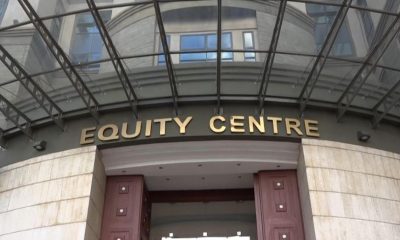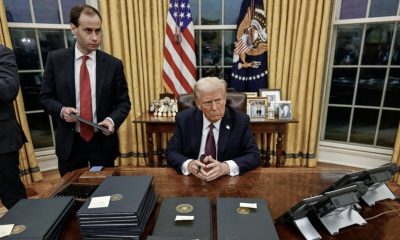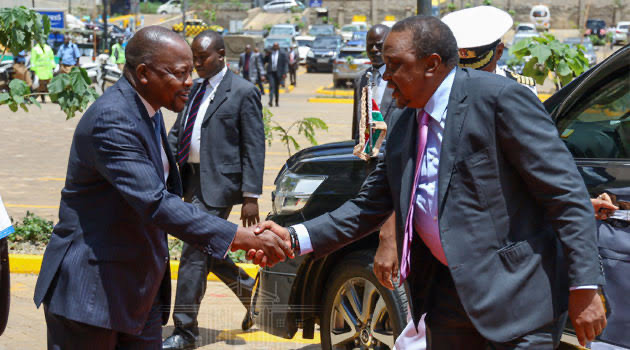Escalating taxations
Digital Tax Service
The Kenyan government implemented taxes on Internet businesses and entrepreneurs in January, 2021 with an aim to bring up to 1,000 companies and individuals under its tax bracket which, it claims, could generate up to $45 million (Ksh 5 billion) in revenue by June 2021. The Kenya Revenue Authority (KRA) publicised Digital Services Tax in 2020, following the Finance Act 2019. Businesses and Individuals would pay a 1.5% fee on the value of goods and services sold or offered online.
Some of these services include e-books, movies, music, games, theatre and event tickets, news platforms, magazines and other digital content.
The COVID-19 induced disruption and has moved several businesses online, and the KRA expects this to work in its favour in 2021 as many business have resorted to online service delivery as demand for it have since been on the rise at the expense of recovering business.
Only India, Italy, France, the UK, Mexico, Hungary, Austria, Czech Republic, Turkey, Belgium and Spain are in the process of implementing the process. These aren’t even Kenya’s peers in terms of Economy index ranking. Kenya is the only African country to have implemented the Digital Tax Service.
As much as KRA is implementing its programme thinking they’re being innovative and ahead of time — they’ve killed and continue to kill business and they might be left with a handful to tax and will revoke more pins for individuals and business not filing their annual returns.
In the wake to economic recovery after covid19 wrath, what’s the essence of the Government lobbying for foreign and local loans which end up in dirty hands of cartels in the name of tenderprenuers.
As the Jubilee Government which has become Handshake Government continue to lobby for more loans and bonds and continue to recieve more aids and grants from international community – it has equally stretched out its hands to siphon money from small business and individuals by overtaxing them to meet their revenue target.
Goods exempt from taxation in Kenya
On September 17, 2013, President Uhuru Kenyatta ordered the Kenya Revenue Authority and the National Treasury to clarify on the list of VAT exempt goods in Kenya. This presidential order was in a bid to deter unscrupulous traders from overpricing goods and taking advantage of the ‘local mwananchi’.
The offense of charging VAT on exempt goods or services carries a fine of even up to one million Kenya shillings or a jail term of three years. Here is a detailed list on goods that have been exempted from the Value Added Tax in Kenya.
Below is a list of VAT exempt goods in Kenya according to their categories.
1. Materials used to prepare the cleaning dairy apparatus.
2. Mosquito nets
3. Seeds for sowing, for example, cotton seeds, sunflower seeds, mustard seeds, sesamum seeds, safflower seeds, cola seeds, linseed and mustard seeds.
4. Inputs for the use of in the manufacture of agricultural products
5. Floriculture, Agriculture and Horticulture inputs
6. Fertilizers
7. Electrical Energy Saving bulbs
8. Specialized solar accessories and equipment
9. Hotel equipment marked, printed or engraved with any hotel logo
10. Education as well as educational materials and articles
11. Museums and exhibits
12. Relief goods imported mainly for emergency use in areas where a natural calamity has occurred. The importation must be made within a span of six months not exceeding 12 months.
13. Speed governors
14. Computer software and media that contains computer software
15. Plants and machinery designed specifically for garbage collection are some examples of VAT exempt vehicles.
List of VAT exempt transactions and VAT exempt services in Kenya
1. The following financial services are VAT exempted:
*The operation of current, deposit, or savings accounts as well as the provision of account statements.
*Issuing of credit and debit cards.
*ATM transactions excluding the supply of the machines and the software to run it.
*Cheque handling, processing, clearing as well as cancellation of cheques.
2. Insurance and reinsurance services excluding actuarial services, management, and related insurance consultancy services and services of loss adjusters.
3. The supply of education services
4. Medical, dental, veterinary, and nursing services.
5. Agricultural and horticultural services.
6. Burial and cremation services.
7. Transportation of passengers by any means excluding international air transport.
8. Supply by way of sale, leasing, renting, letting or hiring land or residential premises.
9. Community, social and welfare services provided by National Government or County Government.
10. Stock exchange brokerage as well as tea and coffee brokerage services.
11. The supply of services rendered by educational, religious, welfare, political and other philanthropic associations to their members.
12. Stage and cultural performances which are conducted by educational institutions and approved by the Cabinet Secretary for education as part of the learning curriculum.
13. Accommodation and restaurant services provided or operated by an educational training institutions and also approved by the Cabinet Secretary.
14. Conference services conducted for educational institutions.
15. Car park services rendered by National Government, County Government.
16. The supply of airtime by any person other than the provider of cellular mobile telephone services or wireless telephone services.
17. Leasing, hiring, and chartering of aircrafts
On 23 December 2020, the Kenyan President assented to the Tax Law Amendment Act (No. 2) of 2020 (the Act). The Act amends the Income Tax Act and the Value Added Tax (VAT) Act of Kenya.
The key amendments made through the Act include the reinstatement of: (i) the resident corporate income tax rate to 30% from 25%; and (ii) the highest individual income tax band to 30% from the 25%. Additionally, the VAT rate was reinstated to 16% from 14% through a legal notice in accordance with the law.
These rate changes became effective on 1 January 2021. Some of the notable introductions into the tax landscape is the minimum tax at the rate of 1% of the gross turnover, a digital services tax at the rate of 1.5% of the transaction value and also the introduction of a Voluntary Tax Disclosure Program, which will run for a period of three years beginning 1 January 2021.
This Alert summarizes the tax proposals contained in the Act and insights into the other critical tax changes that took effect on 1 January 2021. Refer to EY Global Tax Alert that summarizes all the tax changes enacted by the Finance Act, 2020.
Kenyans have a government which operates like matatu sacco business which grasps the opportunity to siphon passengers by doubling the fare when it rains. In the midst of a pandemic, the Government saw a great opportunity to bloat its accounts by overtaxation and reinstatement of old laws to increase its revenue.
Overtaxation in an economy where the Head of State himself Uhuru Kenyatta admitted that KShs. 2 billion – $20 million tax payers money is lost on daily basis to money launders in the government. Corruption at its best.
The government wants more but cant even manage the little they have. The more they get, they more public coffers loot.
The Treasury have even now proposed to remove syringes from the category of goods exempt from taxation, in the Finance Bill of 2021. A sign that exempted Goods and Services in the Healthcare sector will soon be almost all taxed as the treasury seems to also want to grasp the opportunity in the demanding healthcare service due to the pandemic.
It also turns out Government is against local chang’aa brewers not because the brewers are producing substandard Chang’aa – liquor but because the Government isn’t / can’t getting / get enough tax from the brewers. A jealous partner.
Soon they’ll tax the church since that’s the only lucrative business not being taxed and clergy are ripping big. As Corona continues to swipe out humanity, your Government is assisting it by overtaxation. Total Economic sabotage instead of Economic recovery.
Public debt
According to the 2021 Budget Policy Statement, Kenya’s public debt as of June 2020 stood at Sh7.06 trillion, which is equivalent to 65 percent of GDP.
In December 2020, the Treasury claimed that the figure was Sh7.2 trillion, which was 65.6per cent of GDP.
At the same time, in November 2020 the Treasury in its Post Covid-19 Economic Recovery Strategy stated that public debt was at Sh8.41 trillion. Controversies!
In reconciling this discrepancy, the Treasury claims that this arises from committed but undisbursed concessional loans.
With public debt at Sh8.4 trillion in November 2020, it is likely to hit around Sh8.8 trillion by the end of this financial year, which is June 2021. Now, add Sh3.4 trillion, which the IMF has pressured government to add on its register arising from parastatals and county loans, Kenya’s debt portfolio stands at Sh12.2 trillion at the end of this financial year.
Kenya, möge der allmächtige Gott mit dir sein
Kenya, Ilaaha Qaadirka ahi ha kula jiro
كينيا ، الله تعالى مع
Kenya, que Dieu tout-puissant soit avec vous
Kenya, que Deus Todo-Poderoso esteja com você
Kenya Insights allows guest blogging, if you want to be published on Kenya’s most authoritative and accurate blog, have an expose, news TIPS, story angles, human interest stories, drop us an email on [email protected] or via Telegram

 Investigations2 weeks ago
Investigations2 weeks ago
 Business2 days ago
Business2 days ago
 Business1 week ago
Business1 week ago
 Americas2 weeks ago
Americas2 weeks ago
 News2 weeks ago
News2 weeks ago
 Politics1 week ago
Politics1 week ago
 Business2 days ago
Business2 days ago
 Business1 week ago
Business1 week ago


















